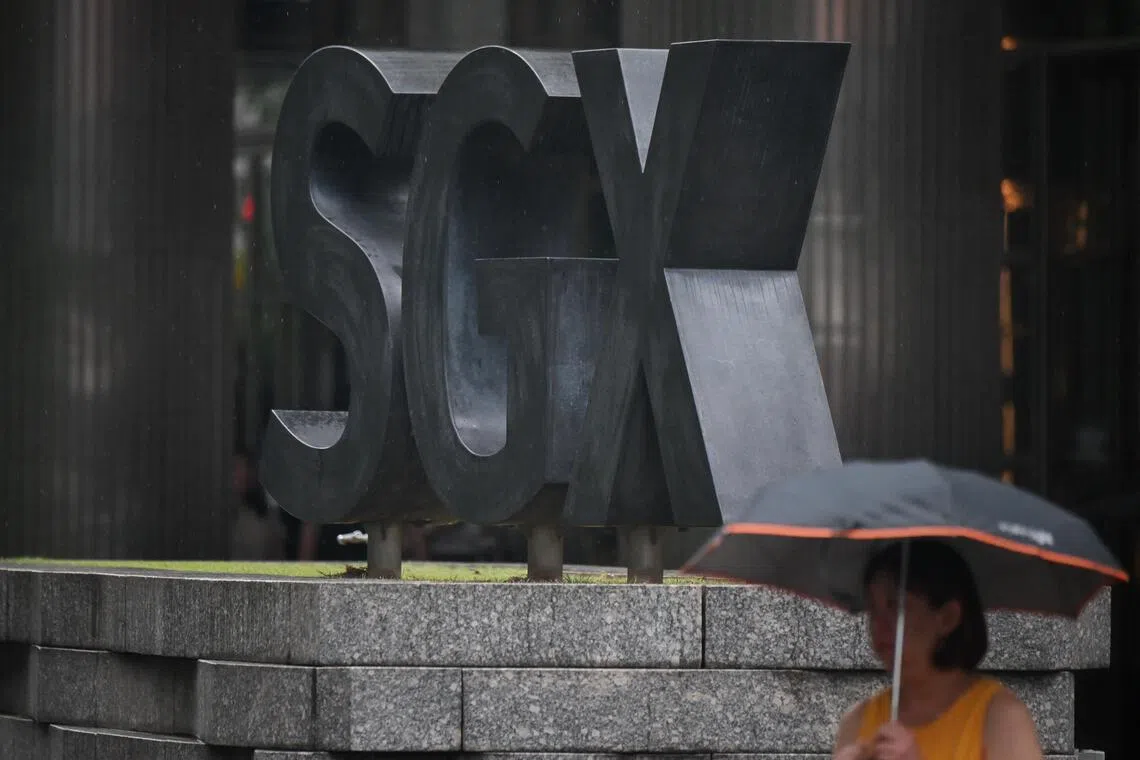Singapore stocks track regional market gains; STI up 0.4%
Sign up now: Get ST's newsletters delivered to your inbox

Across the broader market, advancers outnumbered decliners 348 to 227, after 1.7 billion securities worth $1.6 billion changed hands.
PHOTO: ST FILE
Navene Elangovan
Follow topic:
- Singapore's STI rose 0.4% to 4,444.33, with 348 advancers and 227 decliners. Jardine Matheson gained, while DFI Retail fell.
- Local banks showed mixed results: UOB and OCBC rose, but DBS declined. Singtel was most active, with 33.5 million shares traded.
- Regional markets also rose, including Kospi, ASX 200, Nikkei 225, and Hang Seng. Focus is on quality and sustainability of growth.
AI generated
SINGAPORE - Local shares ended Nov 3 higher, tracking gains across regional markets. The benchmark Straits Times Index (STI) rose 0.4 per cent or 15.71 points to close at 4,444.33. But the iEdge Singapore Next 50 Index lost 0.2 per cent, or 2.61 points, to 1,448.57.
In the broader market, advancers outnumbered decliners 348 to 227, with 1.7 billion securities worth $1.6 billion changing hands.
Jardine Matheson was the day’s top blue-chip gainer, rising 3.4 per cent or US$2 to US$60.75.
DFI Retail Group was the index’s biggest decliner, falling 3.1 per cent or 11 US cents to US$3.40.
The three local banks ended mixed: UOB was up 0.5 per cent or 18 cents, at $34.85. OCBC rose 0.2 per cent or four cents to $17.07. But DBS fell 0.3 per cent or 14 cents to finish at $53.79.
Telco Singtel was the STI’s most active counter by volume, with 33.5 million units worth $143.3 million traded. It rose 0.2 per cent or one cent to $4.26. Earlier in the day, Mr Stephen Rue, CEO of Australian telco Optus, which is owned by Singtel, said he does not plan to step down following September’s outage, in which four people died because they could not reach emergency services.
Across the region, South Korea’s Kospi rose 2.8 per cent to hit a new high, and Australia’s ASX 200 was up 0.2 per cent. Japan’s Nikkei 225 advanced 2.1 per cent, and the Hang Seng Index in Hong Kong gained 1 per cent.
Mr Stephen Innes, managing partner of SPI Asset Management, said that while company earnings are growing, the market’s focus is no longer on earnings beats but on the quality of the growth and the sustainability of the margins.
He said: “Traders know the difference between a cyclical bump and a structural one, and what they’re seeing looks like a plateau dressed as a peak.” THE BUSINESS TIMES

